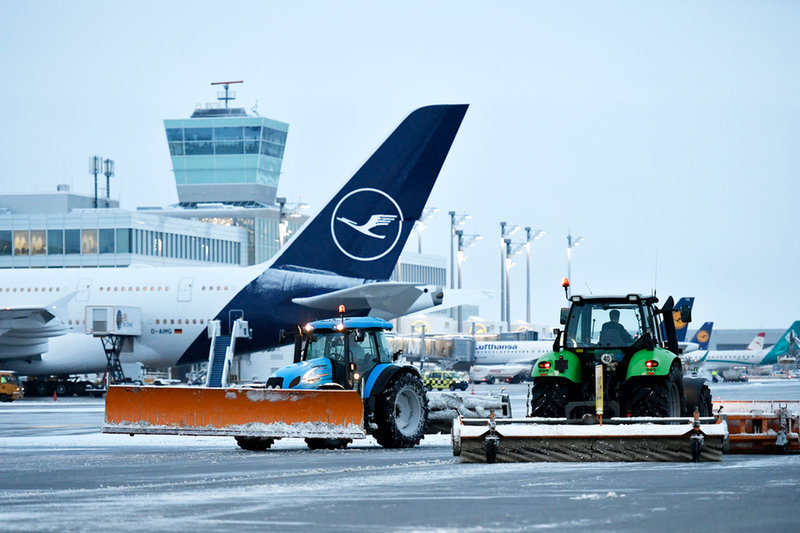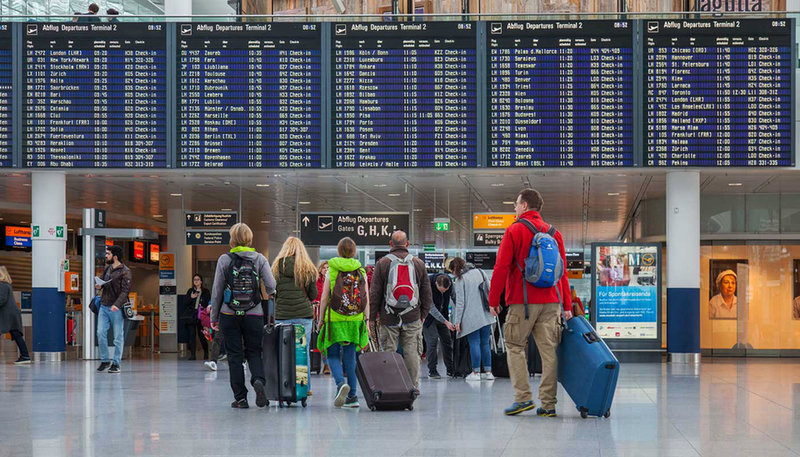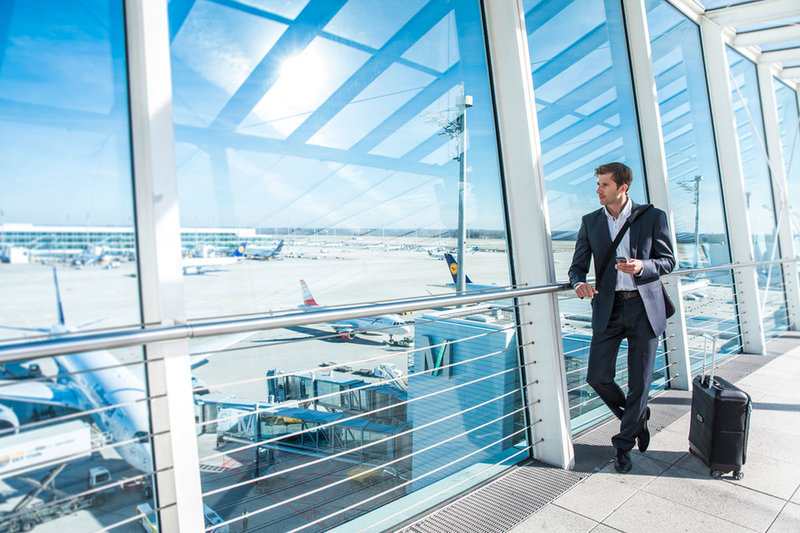AIRPORT PROFILE
Munich Airport: the path to success
Despite the Covid-19 pandemic bringing global airports to their knees, Munich Airport has managed to maintain its high standards, receiving Skytrax’s five-star rating as a result. Ilaria Grasso Macola speaks to the airport’s CEO to find out what’s behind the hub’s success.
Image: copyright
Air transport consultancy Skytrax once again renewed Munich Airport’s five-star rating in November 2020, citing the airport’s improved standards of service and hospitality as determining factors for the re-accreditation.
“Munich Airport has set new standards in the European airport landscape with the renewed confirmation of this seal of approval,” said Skytrax CEO Edward Plaisted.
“Munich Airport has not rested on its awards, but with many attractive innovations has ensured that passengers have an even more pleasant stay at Munich Airport.”
The only airport in Europe to have a 5-star Skytrax certification, Munich is one of only seven airports in the world to receive the prestigious accreditation. The other airports include Doha Hamad, Singapore Changi and Tokyo Haneda.
“I consider it particularly remarkable that we were able to maintain our high standards despite the many restrictions imposed by the pandemic,” commented Munich Airport CEO Jost Lammers.
“The fact that we will remain a 5-star airport in the future strengthens our resolve to overcome the current crisis together as an airport community. Certainly, there will be a time after the pandemic crisis, and I am confident that our hub will then be able to build on the successes of previous years.”
A long list of successes
Skytrax’s 5-star accreditation is the last in a long list of successes scored by the Bavarian airport in the last few years.
At the Skytrax World Airport Awards, which took place in May 2020, the airport took home the 'Best Airport in Europe' title for the 13th time in the last 15 years, while also bagging awards for the 'Best Airport in Central Europe' and 'Best Airport: 40 to 50 million passengers'.
Compared to 2019, the Bavarian hub improved by two ranks, earning a fifth place in 'the World’s Top 10 Airports of 2020' category.
“We are delighted that Skytrax has recognised us as the best airport in Europe 13 times in the last 15 years,” says the airport’s CEO Jost Lammers.
“According to the roughly 12 million people surveyed worldwide, Munich is rated as one of the best airports for transfer traffic. It is actually the excellent quality of stay and stress-free travel experience that make Munich Airport so popular.”
Terminal 2 offers our guests an excellent travel experience.
At the Skytrax 2017 World Airport Awards, Munich Airport’s Terminal 2, which opened in 2003 and underwent an expansion project increasing its capacity from 11 to 36 million passengers per year, was voted the world’s best airport terminal.
Reasons for the victory included the terminal’s top ratings for its entertainment options, as well as its enhanced capacity and architecture, which enables short connecting times.
“Terminal 2 offers our guests an excellent travel experience, and the results show that our passengers also feel that way,” said Wilken Bormann, former CEO of Lufthansa’s Munich hub, which operates the terminal jointly with Munich Airport.
Beyond its terminals, Munich has also been recognised for its commitment to eco-friendly initiatives. In November 2020, the Association of the German Gas Industry awarded the Mobility and Transport’s innovation prize to the airport for developing an airport passenger bus that runs on liquid methane.
Developed together with German start-up CM Fluids, the bus will eventually run on regeneratively produced biogas and later biomethane, making it energy efficient and carbon neutral.

An airport unlike any other
According to Lammers, innovation and the continuous improvement of services are the secrets behind the airport’s success.
“To remain competitive in the long term, it is essential for us to explore new technologies, both within our own industry and in cooperation with partners from other segments, and to integrate these technologies into existing processes and operational procedures,” he explains.
Passenger comfort is put at the forefront of operations at Munich Airport, with services ranging from relaxation areas and comfortable seating to public showers and childcare.
“At Munich Airport, travellers benefit from a broad range of services and conveniences a 5-star airport has to offer,” he adds.
Technology is also a vital part of operations at the airport, particularly at security. In recent years, authorities have introduced highly sensitive inspection devices that use computer tomography technology to check carry-on luggage, allowing passengers to leave laptops, smartphones and permitted liquids inside their baggage.
At Munich Airport, travellers benefit from a broad range of services and conveniences.
“Four travellers at a time can now place their luggage in larger trays than before - those who need more time no longer delay the process,” comments Lammers.
“In addition, the latest generation of body scanners in the clearly laid out screening lanes enable greater convenience and security. For example, improved technology, especially automatic explosives detection, provides an additional plus in safety.”
In November, global airline organisation Star Alliance completed the development of a biometric identity and identification platform, which enables passengers to go through security and boarding in a touchless manner.
The platform – which also enables travellers to maintain face masks during biometric identity checks – was first installed at Frankfurt and Munich airports and used by Lufthansa and Swiss on selected flights.
“In order to maintain our 5-star status and of course to continuously improve the passenger comfort, we have the ambition to implement the latest developments especially in digitalisation at Munich Airport,” says Lammers.
“We are proud to be the first airport where the Star Alliance Group has introduced face recognition technology.”

Covid-19 and the future of Munich Airport
Despite the many successes, Munich Airport was badly hit by the impact of the Covid-19 pandemic on global aviation.
According to data, the airport registered its lowest traffic figures since its opening in 1992, with passenger volume falling from almost 50 million in 2019 to around 11 million in 2020.
Take-off and landing movements dropped by 65%, while airfreight and cargo suffered a reduction of almost 60%.
“Due to the travel restrictions prompted by the pandemic and the resulting sharp decline in the number of flights, passenger handling in our Terminal 1 has been suspended until further notice,” adds Lammers.
I am convinced that the global need for mobility will increase in the medium run.
“All arrivals and departures are currently going through Terminal 2. Besides essential businesses – such as pharmacies, food stores, banks, drug stores and gas stations – all airport shops and restaurants are closed at the moment.”
Despite 2020 being the worst year ever for aviation, Lammers is still quite optimistic that things will eventually revert to normal, consolidating the airport’s position as one of the world’s main hubs.
“We expect that it will take some time until supply and demand in aviation are back to their old levels,” he concludes. “Structural changes in the aviation industry, including consolidation, will also continue.
"However, I am convinced that the global need for mobility will increase in the medium run, so aviation will also rise again in the medium term."

All images credit: Flughafen München GmbH